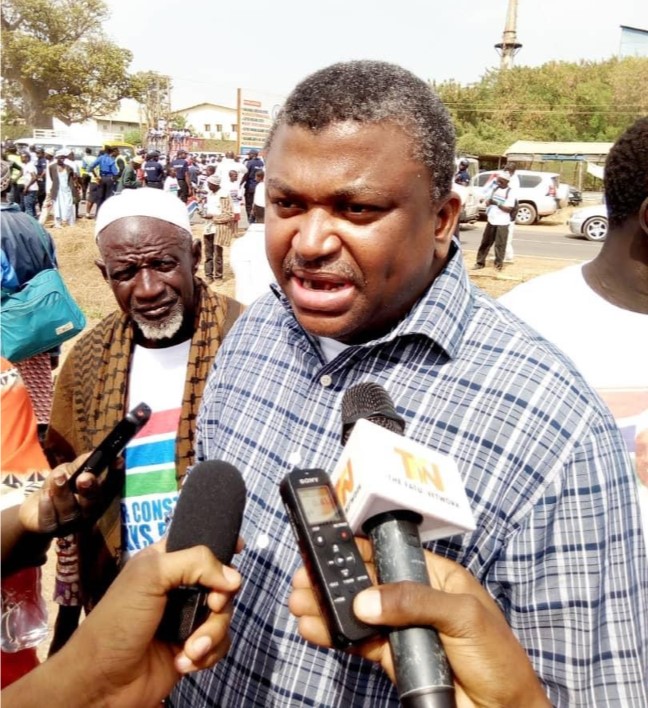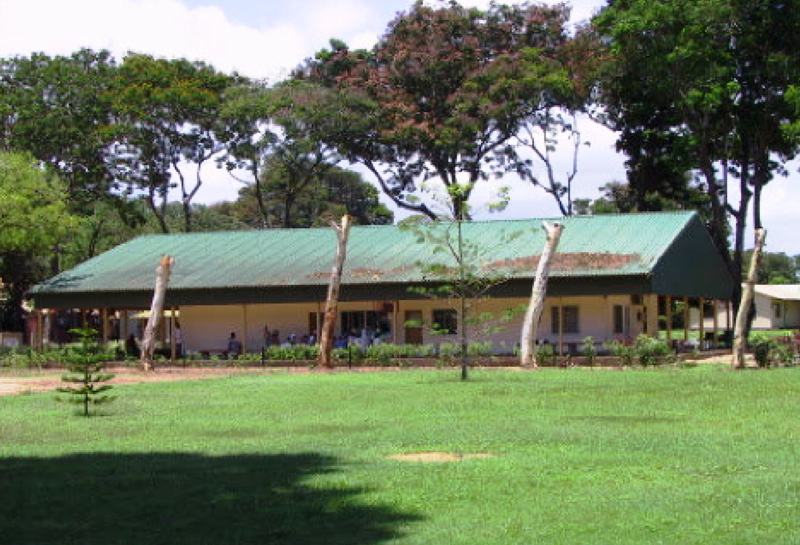By Musa Camara
The novel Coronavirus is ravaging the world, leaving in its wake, as of the writing of this piece, nearly two million infected and over a hundred thousand people dead. Globally, it’s leading to both economic and financial crises causing millions of unemployment and loss in tens of trillions of dollars in investments. It disrupts socialization norms, religious services, sports and recreational activities, entertainment, mode of education, the very delivery of healthcare — preventative, primary, obstetric, gynecological, cardiovascular, pulmonary, oncological, dental, acute, etc., — among many other mundane human activities.
In The Gambia, officials at the Ministry of Health reported a total of nine cases of the Coronavirus infection among which one person had died. According to the officials, two patients have recovered and subsequently discharged from clinical care. Currently, about six people are in hospital receiving treatment for the disease. As much is still not known about the virus causing this pandemic, The Gambia has its own challenges uniquely entrammeled by the times and embedded in the material realities of the country.
Listening to politicians and public officials in The Gambia talk about the pandemic, one quickly realizes that there is huge knowledge gap in their understanding of the coronavirus which leads to COVID-19. If you are like the former British Prime Minister Benjamin Disraeli (1804—1881) who once said “I hate definitions,” please indulge me to digress here for clarification on the confusion among many of our citizens.

The novel coronavirus is not COVID-19 but the virus that replicates in a host to cause the disease known as COVID-19. The Coronavirus is a novel enveloped ribonucleic acid (RNA) betacoronavirus belonging to one of the thirty-nine known species of the Coronavirus family. It’s genetically similar to Severe Acute Respiratory Syndrome (SARS) that led to an outbreak of 8096 cases in more than twenty-five countries in 2002-2003. Patients with COVID-19 manifest symptoms similar to those exhibited by victims of the SARS which was classified by virologists as Severe Acute Respiratory Syndrome-Coronavirus (SARS-CoV). The novel Coronavirus, just like SARS-CoV, is of the same family of virus as the Middle East Respiratory Syndrome Coronavirus (MERS-CoV) which was first reported in Saudi Arabia in 2012 and spread to countries in the Middle East and beyond. After Chinese officials release the genetic data of the novel Coronavirus, the International Committee on Taxonomy of Viruses (ICTV) named the novel Severe Acute Respiratory Syndrome-Coronavirus (SARS-CoV-2). The success of the Chinese researchers in isolating the novel Coronavirus led the World Health Organization (WHO) to call the disease caused by SARS-CoV-2, discovered in December 2019, as the Coronavirus Disease 2019 (COVID-19).
Coronavirus spreads in mysterious ways some of which are still not yet fully known to health officials. It’s clear to all that the virus spread through direct contacts—(droplets such as saliva, mucous, etc.,); indirect contacts—(touching surfaces such as counters, doorknobs, gas pump nozzles, cash money, etc.,); and exposure to environment—(aerosols, and possibly airborne). The modes of spread of the Coronavirus—or the lack of full knowledge of all its vectors of transmission—make it highly potent and contagious enough to pose significant public health challenges to nations around the world.
The Gambia combines many of the elements for the Coronavirus to spread beyond our capacity to contain and manage. The Coronavirus is viably resilient in socially conservative societies with small segment of hardcore religious sects in sprawling metropolitan cities with inadequate healthcare facilities. Such societies, as our is, provide petri dishes for the virus to incubate among few hosts and later spread among the general population like wildfire in a dense forest.
The outbreak of the Coronavirus in South Korea started among members of a Roman Catholic religious sect known as the Schincheonji. Leaders of that religious group required members to sit in close proximities to one another in worship and socialization akin to norms in our society and religious practice. While socialization, touching and intimacy are good for human beings to thrive, these conventional human interactions now pose health threats to people in all societies during this unmitigated outbreak of the Coronavirus. The Marrakas in Bundung, where the Bangladeshi cleric who succumbed to COVID-19 last month stayed for few days, adds onto the plethora of case studies that isolated closely knitted-religious groups provide the ideal petri dishes for the Coronavirus to incubate, thrive and fester for cyclical outbreaks. Even normal religious congregations and traditional social interactions provide opportunity for the Coronavirus to spread.
Italy and Spain, the two countries in Europe most ravaged by the Coronavirus incidentally also have a major religion of Catholicism that made those societies highly sociable at the family and community levels. The Gambia has similar characteristics that allow intimate interactions a requirement of cohabitation and socialization within our culture. Majority of the people within the family and extended family units eat together from the same meal bowls, take turns to drink from the same cups, wash hands before and after meals in the same washbasins, and sip Attaya from the same sets of tumblers. The very concept of social distancing is antithetical to our social system and religious understanding where guarded personal territoriality is construed as arrogant displays of one’s superiority or lack of a strong faith and belief in Allah. In such traditional societies, community transmission of any communicable germs — bacteria, viruses, fungi, and protozoans — are likely to be at much higher rates than in more individualized Western culture. According to a study by the Imperial College London, the rate of the spread (basic reproduction number) of the Coronavirus per infected person in Wuhan, a city in the Hubei providence in China where the virus first broke out, was 2.6 or (denoted as R0=2.6).
The Coronavirus needs human beings to survive, replicate and transmit to different hosts. Large congested cities provide fertile grounds for it to spread. Wuhan with over 11 million people, Lombardy region in Italy with about 10 million people clustered in the area, and New York City with a population of approximately 9 million registered large numbers of cases and high rates of infection of the Coronavirus and death from COVID-19. Whereas the entire population of The Gambia is approximately 20 percent of these cities, 59.4 percent of our citizens live in mostly congested urban cities where many other people commute regularly for work or business activities. The Greater Banjul Area with its densely-populated suburban towns and cities could, through community transmission, replicate Coronavirus infection rates per capita similar to those seen in Wuhan, Lombardy and New York. Approximately, 70 percent of the population in The Gambia lives in the Banjul, Kanifing and Brikama administrative areas—less than an hour’s drive radius from the center point in Sere Kunda.
Even in economically advanced countries, high infection rates of the Coronavirus and deaths from the COVID-19 have led to overruns on their health systems stretching them beyond operational capacities. Cities such as New York, Wuhan, New Orleans, Rome, etc., are at one point or the other overwhelmed to care for all those who desperately need medical care. Shortages of hospital beds and medical devices such as mechanical ventilators caused delay in care which in itself led to some preventable deaths. Healthcare professionals such as phlebotomists, nurse’s assistants, nurses, occupational therapists, speech therapists, and physical therapists, laboratory technicians, social workers, medical assistants, physician assistants and physicians have become infested or are inadvertently transformed into vectors of transmission of the virus between patients. Healthcare administrators blame nosocomial spread of the Coronavirus on their hospitals running out of Personal Protective Equipment (PPE). Many of the hospitals in these advanced countries are comparatively more equipped with trained personnel, healthcare facilities and medical equipment than the average hospital in The Gambia. According to unconfirmed sources, the Edward Francis Small Teaching Hospital (EFSTH) has only one ventilator, and that all the healthcare facilities combined have no more than five ventilators in the country. If these numbers are accurate, it makes more obvious the truism that The Gambia is ill prepared for a large-scale Coronavirus and COVID-19 outbreaks. The country does not have a world-class healthcare system to fight a virus and disease that the WHO, on 11 March 2020, declared a global pandemic. That should concern even the most optimists among us.

Coronavirus outbreak in The Gambia could become calamitous as it has been in other countries. It has a pervasive presence around the globe thanks to its nebulousness in those who shed the virus in their pre-symptomatic or asymptomatic stages as the Coronavirus replicates and incubates into COVID-19 in many of the unsuspecting hosts. Clinical evidence in a study conducted in Singapore shows that viral shedding of the Coronavirus could span from zero to twenty-four days. The additional five diagnosed cases of the Coronavirus in The Gambia reported yesterday, which according to the Minister of Health were detected after releasing the virus carriers from quarantine before taking them in for treatment, provide early indication that the incubation period of the Coronavirus in patients in The Gambia could be longer than the fourteen-days observation of quarantine that health officials recommend for those exposed to the virus. This emerging information provides an opportunity for the health authorities in The Gambia to develop their own robust evidence-based Coronavirus screening and containment protocols which could add onto the global literature in understanding the incubation period of the virus in tropical countries in Africa.
Fortunately, Coronavirus has manifested itself differently in individual patients in different countries and regions. The Gambia should learn from them by developing its own evidence-based Coronavirus screening protocols to contain the spread. A study of patients in Wuhan found that on admission only 44 percent of COVID-19 patients manifested fever and 68 percent had cough as a symptoms of the disease. Another study of COVID-19 patients in the State of Washington, in the United States, found that 50 percent of the patients who were hospitalized for the disease exhibited no fever at admission for care. Tracking fever has been one of the vital signs that our officials relied on as a determinant to allow travelers into the country when presumably seven asymptomatic Coronavirus carriers were admitted into the country before our borders were eventually closed. If they are to continue to rely on taking temperature or observing for cough or respiratory distress in conducting initial screening for suspected cases, they could misdiagnose COVID-19 patients who may report digestive symptoms which clinicians have not commonly used as primary indicators for COVID-19 symptoms. A study of COVID-19 patients in three hospitals in Hubei province of China found that nearly 51 percent reported digestive discomfort and gastrointestinal symptoms—among them 34 percent had diarrhea, 3.9 percent vomited, and 1.9 percent reported abdominal pain. Health systems in the U.S. State of Ohio, according to the Department of Health Director Amy Acton, also admitted Coronavirus patients who complained of gastrointestinal upset and fatigue. Given the comorbidities of symptoms manifested by COVID-19 patients, every health complaint should be suspect for Coronavirus infection. This approach will necessitate more testing to prevent health officials from discharging from clinics and hospitals patients who manifest these noncommon symptoms. Doing otherwise would, inadvertently, return vectors of the Coronavirus into their communities to continue spreading.
The Gambian officials reported that among the tests they have conducted for people suspected of possibly infected with the Coronavirus, there are two inconclusive results. Our officials should be debriefing on lessons learned from Senegal that registered only few cases of the Coronavirus but is now on the trajectory to registering 300 cases in just few weeks. Even if the inconclusive tests are confirmed negative for the Coronavirus, but with approximately two hundred people in quarantine or isolation, The Gambia is still not out of the woods of a potential healthcare crisis.
Projections indicate that about 20 percent of those infected globally would get sick and probably need medical care, and that 2 percent of them will die. Thus far, the Coronavirus has been more deadly with approximately 111,000 or 6 percent of those who contracted the virus admitted to Intensive Care Units and other treatment facilities have died. Emerging evidence has shown that approximately only 414,000 or 23 percent from the approximately 1.8 million infected people around the globe have fully recovered from the Coronavirus and COVID-19. Some patients who recovered from the Coronavirus could develop antibodies to build immunity of the virus for some period of time or throughout the rest of their lifetimes. Anecdotal evidence has shown that former patients in the U.S. who have built antibodies of the virus have donated blood to critically ill COVID-19 patients who after transfusion have seen some improvements in their prognoses. The Gambia should not rely on this promising news because we do not have the luxury of time and resources to see large number of people recovering from COVID-19 to donate blood plasma to benefit other patients.
The health demographic realities of The Gambia make the people very vulnerable and possibly defenseless in a fight of COVID-19 pandemic. It has a large number of people with underlying health conditions such as high blood pressure, small-cell lung carcinoma (SCLC) cancer, asthma, diabetes, cardiovascular and pulmonary diseases, sickle cells anemia, etc. The country is plagued with poor social determinants of health such as miserable daily living conditions, high chronic unemployment, inadequate infrastructures, nonexistence of universal healthcare, health disparities and lack of access, inequitable distribution of political power and economic resources, lack of inclusive governance and sound public policies, etc. In the U.S., according to a New York Times story, officials are raising alarm bells that COVID-19 has been disproportionately more deadly to African-Americans than their Caucasian and Hispanic compatriots as early data show that in Chicago “African-Americans account for more than half of those who have tested positive and 72 percent of virus-related fatalities in Chicago, even though they make up a little less than a third of the population.” Although the Coronavirus and COVID-19 do not infect and kill only black people, that demographic takes the brunt of the casualties because their social and economic conditions play a big role in their disproportionate fatalities. African Americans are more likely to be employed in working-class professions and the service sector which required them as essential workers to report to work increasing their chances of contracting the Coronavirus. The average Gambian is not in any better condition than the average African-American. Therefore, Gambians could have similar health outcomes as their African-American counterparts if a COVID-19 pandemic breaks out in our country. The government should use every tool in its toolkits to prevent a Coronavirus and COVID-19 outbreak in The Gambia.

On 26 March 2020, President Barrow issued a proclamation for a State of Emergency which the National Assembly extended to forty-five days. The attempt to mitigate the situation is the right thing to do but it may not be adequate to prevent a Coronavirus and COVID-19 outbreak in The Gambia. The Emergency Power Regulation that still allows the markets to be opened daily from 6.00 AM to 2.00 PM, food vendors to sell food without observing social distancing practices with individual customers during transactions, restaurant takeaways without limiting it to drive-throughs only, beauty salons and barber shops to operate, and all non-food outlets of hundred meters (100M) outside the market to operate show that the government’s attempt at mitigation will ultimately fail to contain the Coronavirus spread. Exemptions given to these actors negate social distancing requirements at points of services for the Coronavirus to spread in our country.
The government should deploy the most effective non-pharmaceutical interventions (NPIs) to contain the further spread of the Coronavirus in The Gambia. These include both mitigation and suppression measures to contain an outbreak that has a death rate of approximately 4 percent (in the U.S.A) to 10 percent (in Italy). The NPIs should include social distancing of the entire population similar to the government closure of schools, colleges and universities. It should undertake robust contact tracing of those exposed to the virus and expand quarantine centers to accommodate people who may have come into contact with people who tested positive for the Coronavirus. Given the conditions and social arrangements in our multigenerational and extended family households, Case Isolation in the home (CI), voluntary Home Quarantine (HQ) and Social Distancing of those Over (SDO) seventy years of age will not work as very few people in our country could successfully implement these NPIs measures in their communities. It’s imperative that government expand on creating quarantine centers to isolate those exposed to confirmed Coronavirus carriers and COVID-19 patients.
Policymakers in The Gambia should see this crisis as a window of opportunity to design and lay the foundation for creating a world-class health delivery system in our country. The government should use the D500 million it hopes to allocate in responding to this health crises to equip our hospitals, clinics and treatment centers with needed medical devices as mechanical ventilators, cardiac telemonitoring, hospital beds and mattresses, glucometers, thermometers, incentive spirometers, etc., which are needed for responding to care for COVID-19 patients but are durable to last for years.
It should also establish a world-class logistics and healthcare specialized supply-chain unit in the Ministry of Health to be responsible for acquiring PPE, pharmaceuticals, and other needed supplies for healthcare workers. It should look at ways of producing isolation gowns, face masks, hospital beds, hospital gowns, manual and electric-powered wheelchairs, cardiac chairs, etc., from our local industries. Investment in these sectors for domestic consumptions would provide opportunities for both import substitution but also facilitates exports of surplus inventory. It would lead to tapping into the ingenuity of Gambian students, engineers, welders, entrepreneurs, textile workers, carpenters, tailors, electricians, architects, etc., to spur a manufacturing industry for a middle-income economy in our country.
The government should also be strategic in its allocation of the Coronavirus resources. It should use resources from the Coronavirus funds, donations from local and international sources, and from its annual budget allocations to build clinics, outpatient centers and hospitals to meet the community health needs of the population. Building these care facilities in strategic locations around the country will serve as integrated healthcare delivery system to meet the preventative, primary, out- and in-patients healthcare needs of people beyond the Coronavirus outbreak.
Any healthcare system is as good as not only its facilities and equipment, but also as its professionals, personnel and staff. The officials at Ministry of Health could be more influential in directing college and university majors by collaborating with their counterparts and educators at the Ministry of Higher Education and tertiary institutions in the country in designing their curricula in allied, applied and health sciences education to meet the demands of healthcare delivery in The Gambia. They could also work with other ministries to allocate a percentage of their annual budget allocations to scholarships for medical, nursing, allied sciences students to provide a stream of highly trained professional to address the shortage of qualified healthcare professionals in the country. In taking this approach, the healthcare industry will drive educational institutions with market-based solutions for the healthcare needs of the nation in which they could train their students with skills to readily find employment.
Investing in the education of healthcare providers will also have spillover effects with great return on investment for the country. Within a decade of such investments, the country could establish a niche with comparative advantages to provide the best trained healthcare professionals for our population who could also export their services to developed nations without needing to leave their homeland for employment. We could produce highly-skilled professionals in radiology, etc., to read X-rays, CT scans, MRI, mammograms, laboratory tests, and ultrasounds from patients around the country but also deploy their services to the healthcare institutions in developed nations that generally outsource their teleradiology, among other services, overseas. Private companies will emerge in the healthcare industry to employ people but also innovate, train their employees, spend their monies, pay taxes and invest their profits in the local economy thereby increasing the multiplier effects of the original investment of the government.
The Coronavirus outbreak and the government’s slow response in preventing it from entering The Gambia exposed systemic problems in our healthcare system. Our response must not be an either/or approach, but should be and/both comprehensive public policy solutions and implementation. This means we must fight the Coronavirus while also building the infrastructure to be ready in the future should the virus evolve into seasonal or cyclical outbreaks. The Gambia should respond to COVID-19 crises using scientific evidence, clinical data and best practices from around the globe to tailor solutions for our peculiar healthcare needs exacerbated by our socio-economic, political and cultural circumstances.
CORRECTION: When this article was initially published, the author stated that the five new positive case of the Coronavirus in The Gambia were detected at release of the people in quarantine. New information coming out from health authorities indicates that the carriers of the Coronavirus were released into their communities but later taken in for treatment after their discharge test results indicated that they were positive carriers of the Coronavirus.

